The Importance of Motion Play
Have you ever felt the exhilaration of flying through the air? Chances are if you’ve pumped a swing high into the sky or taken a ride on a zip line, then you know what I’m talking about. Simply put, motion playground equipment moves us in ways that static equipment cannot. Motion equipment plays a critical role in the development of all children.
During my childhood in Britain the playground in my park had three simple pieces of equipment: a merry-go-round, high swings, and a tall metal slide (all installed over blacktop). I loved that playground. The basic motion playground equipment, the merry-go-round, and swings provided endless hours of fun. The swings felt as if they went into orbit. My friends and I had ongoing contests that tested our soaring skills – who could swing the highest?
Once the merry-go-round got going, it seemed to take forever to slow down. I also had an injury-inducing run-in with the merry-go-round while retrieving a tennis ball from under it. So word to the wise: if a piece of equipment is moving and you’re not on it, don’t try to grab something underneath it.
That said, children benefit from motion – the rush and exhilaration keep children engaged and coming back for more. Motion equipment tends to challenge us, thus creating an environment for growth and personal development. How many times can I spin around and then try to walk a straight line? Can I keep my balance on equipment that bends and sways as I go? Who has the record for swinging the longest? How many rotations can I endure without feeling woozy? These are all questions that children ask themselves and their peers when playing on motion playground equipment.
When thinking through the design of a playground, it’s important to remember play equipment that offers a wide range of sensory experiences, including motion. Motion brings resort-style fun and beloved amusement park thrills to the playground. Remember screaming on the rollercoaster as it plummeted off its peak? Those screams are now heard on the playground as newer equipment with platforms and drops make their way into installations. If you are a fan of the Flying Saucers amusement park ride, then you can experience that same feeling on the playground with equipment that moves, spins, and rotates around.
According to EduGuide, a nonprofit group with a mission to boost student achievement, recent child development research suggests that sensory play builds nerve connections in the brain’s pathways, which helps the brain develop. Rocking, spinning, and other physical movement through space help a child’s brain develop. These movements also impact the vestibular (inner ear) system, which affects attention spans and is important for the development of balance, coordination, eye control, attention, being secure with movement, and some aspects of language development. So, while we all know that motion play is good for our soul and spirits, now there is proof that it also benefits each of our brains and growth.
Movement and motion play are serious business for children as they are working to achieve specific developmental milestones. For example, motion play engages gross motor skills, involving the larger muscles including the arms and legs. These skills develop in a head-to-toe order. Infants will typically learn head control, trunk stability, and then standing up and walking. Once children are walking and able to utilize the playground, it is best that they engage with playground equipment that includes products that offer any movement within the structure. For example, the plank is great for jumping. Stepping pods, bridges, and even the path from the base of a slide back to the stairs encourages use of these motor skills.
Other types of skills learned from movement include locomotor and non-locomotor. Locomotor skills, moving the body from place to place, help to develop gross motor skills. Physical abilities such as crawling, walking, hopping, jumping, running, leaping, galloping, and skipping are examples of locomotor movement. Non-locomotor is the movement of the body while staying in one place. Pushing, pulling, twisting, turning, sitting, and rising are examples of non-locomotor movement, which aids in the development of balance and coordination. All these types of play lead to learning of some kind. As children play less, this development is reduced or delayed.
Spinning
Spinning is a standard playground activity that provides a sense of excitement and motion. Over the years, many advances have been made that let children experience spinning at manageable speeds while meeting and often exceeding playground safety standards. When children spin, multiple parts of the brain are stimulated simultaneously. This builds new and more developed pathways throughout the brain, and these pathways improve learning potential, spatial awareness, and rhythm.
In fact, spinning activities may develop pre-reading skills and concepts. Spinning also helps with improving balance, muscle control, and gross motor skills. Some of the newest spinning equipment encourages two or more children to participate in the fun.
When more children engage in the dizzying spins, the equipment moves faster, so you could say that the increase in speed directly correlates with an increase in laughter and overall fun.
Sliding
Sliding is important in the development of all children. Really? Yes, you read that correctly. It’s true, that sliding motion is a key factor in development, and research proves it. The activity stimulates a child’s vestibular and visual sensory systems. Sliding also allows children to work on practicing balance. The sensory input helps develop a child’s ability to motor plan, the skill children need to think through unfamiliar movements of their body. Sliding also offers the experience of a modified fall through space and the thrill of perceived risk. The traditional slide is still a crowd favorite, and has received some facelifts over the past few decades. Playground manufacturers have moved away from metal slides to incorporate more modern materials. Additional widths, twists, textures, and turns have also been added to increase the fun and exhilaration felt when using this classic play equipment.
Rocking
The importance of rocking in motion play may surprise you. The back and forth motion helps stimulate the vestibular system. Additionally, it helps regulate anxiety, develops muscle tone, and establishes a sense of timing during movement. While this motion used to only be felt on indoor features such as a rocking chair or rocking horse, now play equipment brings this sensation to the outdoors for children to enjoy together.
Swinging
Swinging may be seen as the classic motion play movement. It provides each child’s nervous system with a wealth of visual, vestibular, and proprioceptive information. Since their position changes constantly, their brains register continual updates from their sensory systems. As they swing, children gain an understanding of how their body moves through space. They quickly understand which speed makes them most comfortable. Swinging works on motor planning skills necessary to resist or increase active movement.
Laying down, a twist on the traditional sitting on a swing, is also beneficial. Laying on your stomach on an appropriately designed swing puts pressure on the muscles and joints, thus calming the nervous system. This provides calming movement and helps develop postural stability.
Evolution of motion play
In the past, movement has been built into the playground in the form of swings and other types of “traditional” equipment. There are now more motion options today than ever before. Many playground manufacturers have a wide variety of new motion equipment available for purchase. Many are freestanding pieces of equipment while others can be incorporated into a larger playground design. Most motion pieces can be used solo or as part of a group, further increasing the level of fun and social interaction.
For example, consider incorporating equipment that uses gravity to propel one rider from one end of the playground to the other on a downward curved track. Some equipment is designed for multi-user motion that will get kids moving and their hearts pumping while they play. Motion means movement and movement means exercise. With limited time for play, it’s important that children stay physically fit and motion play can help with that.
Another great thing about motion play is that it can help create a sense of perceived risk for children. Certainly, we want children to be safe, but there is something to be said about risk play among young people. It helps them master their environment and develop the skills they will need to thrive. Zip lines at resorts and popular tourist destinations have grown in popularity in recent years. Now that type of resort fun is available on the playground with zip lines manufactured exclusively for use by children.
Children who can experience risk on the playground – tall heights, speed, the chance of falling, or other injuries – leverage these challenges to grow more comfortable until they progressively achieve mastery. By allowing children to move and take risks, we are helping them develop into confident and resilient members of society. Now who can argue with that?
We know outdoor play is critical for children – all children, no exceptions. Motion play takes the outdoor play experience to new heights and speeds. The next time you visit your local playground, check out how many pieces of equipment incorporate motion. Chances are the motion pieces will have long lines of children waiting to take their turn. Sure, swings are still great and will continue to bring high-flying adventure and smiles to children’s faces. Fortunately, today’s 21st-century kids have so much more motion play to explore to get them moving on the playground.

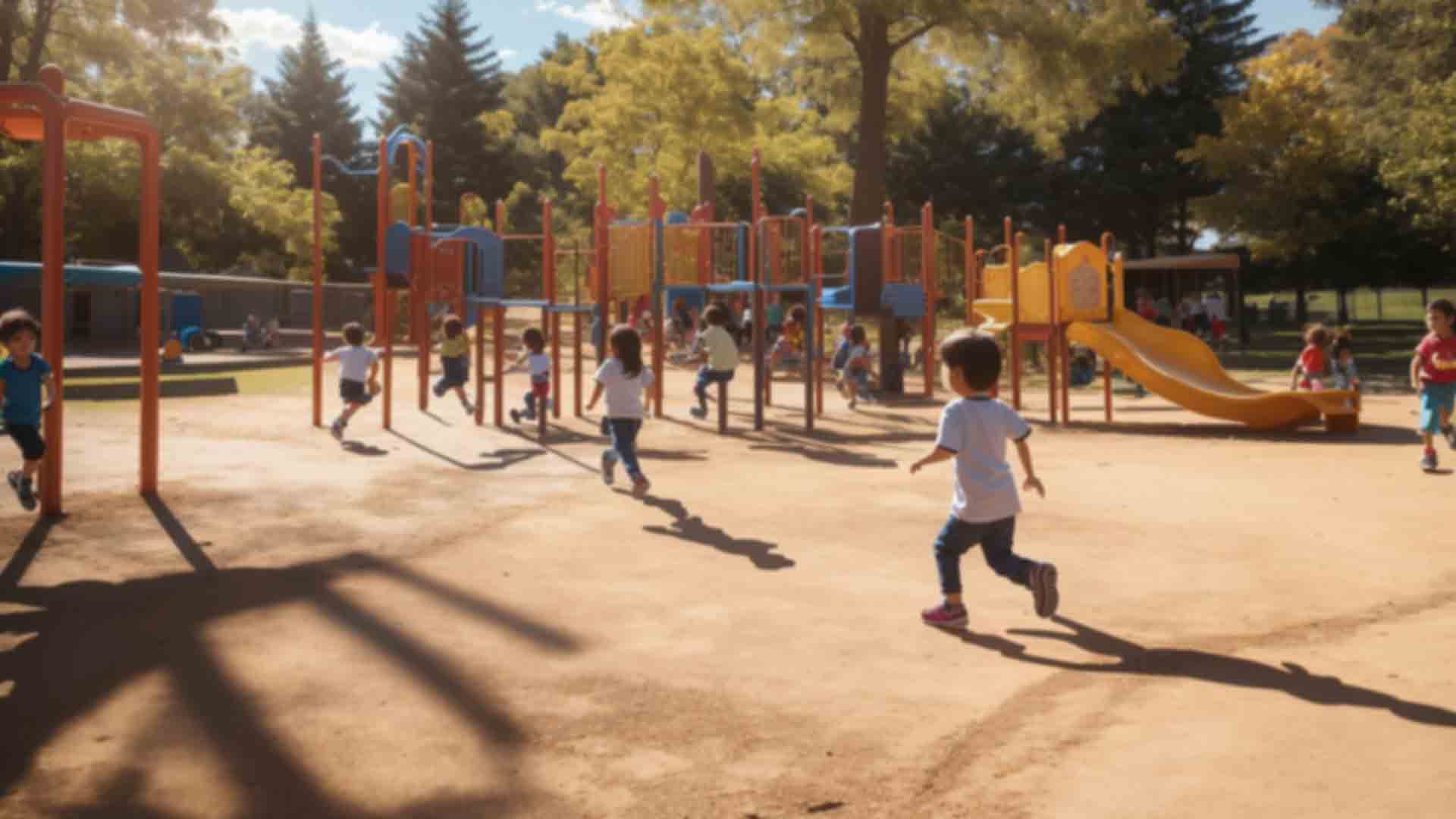

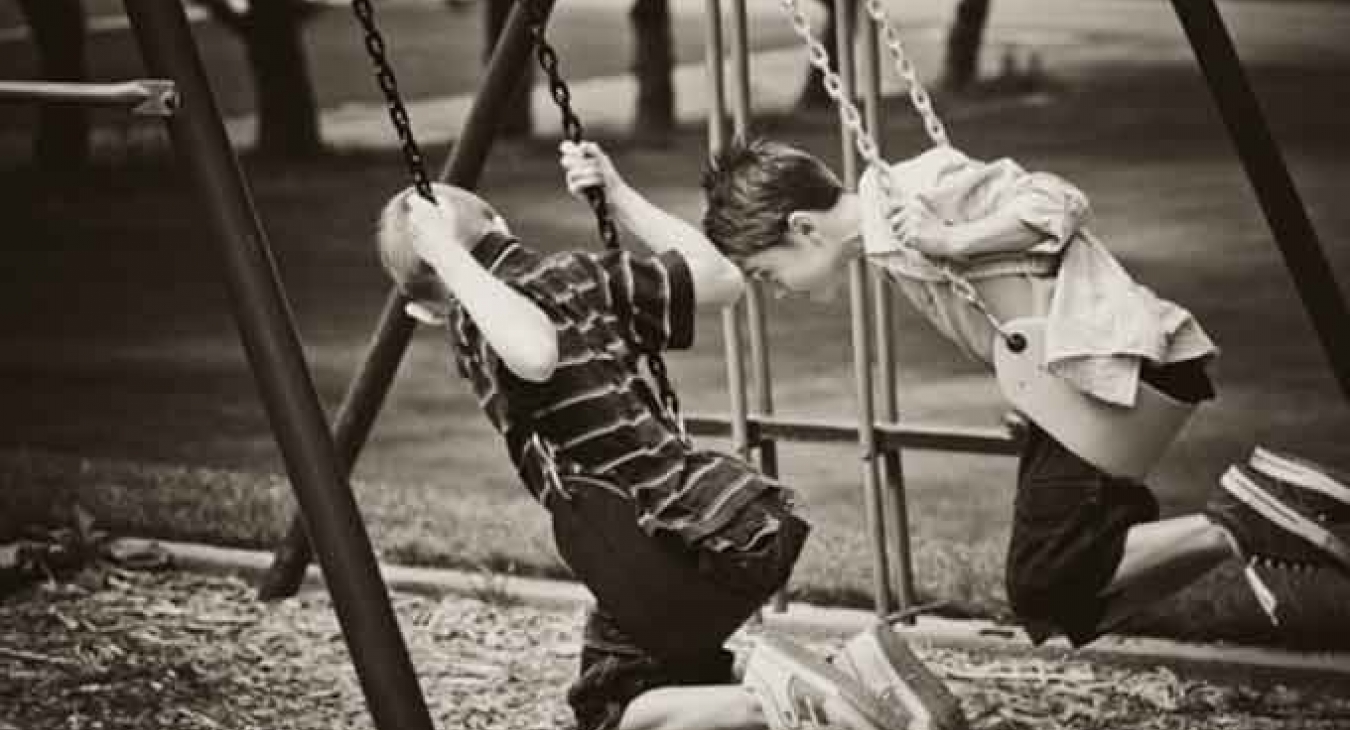
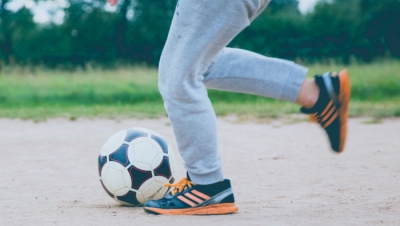
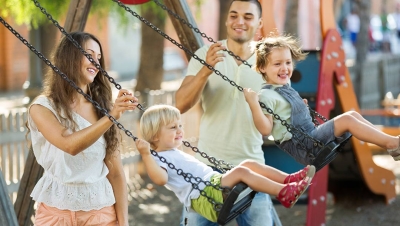
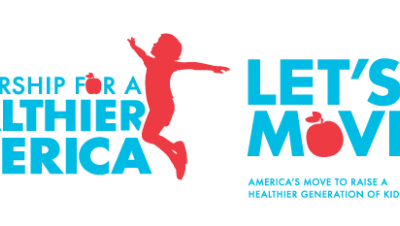









Get Moving on the Playground
You are right Mr. Proud, motion equipment as you described can be critical and children
do need to get moving.
Add new comment